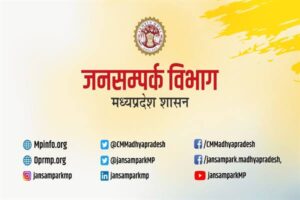Election Commission of India issues guidelines for media coverage Violation of provisions can result in imprisonment up to 2 years, fine or both
Detailed guidelines have been issued by the Election Commission of India in the context of media coverage for the Lok Sabha Elections-2024. The Commission has said that as per Section 126(1)(b) of the Representation of the People Act, 1951, there will be a ban on broadcast of any election related matter (advertisement or publicity etc.) through television, cinematograph or other similar communication medium. This restriction will remain in effect for a period up to 48 hours before the end of polling in any polling area. The Commission has clarified that no person shall show any election matter to the public through the medium of cinematograph, television or other similar equipment. For violating these provisions, the guilty person can be punished with imprisonment of up to two years or fine or both. According to the Commission, any attempt to influence the outcome of the election or such intention or calculation will be considered as an election matter.
There are allegations of violation of the provisions of Section 126 of the Representation of the People Act, 1951 in the telecast of panel discussions/debates and other news and current affairs programmes on TV channels. In this regard, the Commission has clarified that TV/radio channels and cable networks should ensure that the content of programmes broadcast/displayed by them during the period of 48 hours mentioned in section 126 does not contain any such material, including visuals. Appeals made by panelists/participants may be construed as promoting the prospects of a particular party or candidate or influencing the outcome of the election. This will include public opinion polls and standard debates, analysis, visuals and a display of sound-bytes. It also includes political advertisements on any electoral matter on TV, cable networks, radio, cinema halls, use of bulk SMS/voice messages, audio visual displays etc. in any polling.
The Commission has clarified that political advertisements on electronic media will require pre-certification by the committees constituted at the state/district level as per the earlier orders of the Commission. In this context, special attention of the Commission has been drawn by the Commission to the “Guidelines for Election Broadcasting” issued by NBSA on March 3, 2014 for electronic media. The Internet and Mobile Association of India (IAMAI) has developed a ‘Voluntary Code of Conduct’ for all participating social media platforms to ensure free, fair and ethical use of their platforms to maintain the integrity of the electoral process during general elections. This ‘Voluntary Code of Conduct’ which is also applicable in the current Lok Sabha elections should be followed during all elections. In this regard, the Commission has drawn attention of all concerned social media platforms to the “Voluntary Code of Conduct” dated March 20, 2019.
It is also clarified by the Commission that no political party or candidate or any other organization or person shall publish any advertisement in the print media on the day of polling and one day before the day of polling, on the condition that the content of the political advertisements is pre-certified. They will have to take approval from the MCMC committee at the state/district level. Applicants must apply to the State/District Level MCMC Committee two days before the proposed date of publication of such advertisements.
It has also been stated by the Commission that political advertisements shall not be published in newspapers especially in the form of news headlines so as to mislead the readers. There will be a clear ban on advertisements predicting the victory of any particular party and any kind of speculative matter related to the election results should also be avoided. Special attention is also drawn to Part (A) Para 2 (xii) of the Press Council’s Standards of Conduct for Journalists. It states that ‘The editor shall be responsible for all other matters including advertisements published in the newspaper.’
Disclaimer
The information contained in this website is for general information purposes only. The information is provided by TodayIndia.news and while we endeavour to keep the information up to date and correct, we make no representations or warranties of any kind, express or implied, about the completeness, accuracy, reliability, suitability or availability with respect to the website or the information, products, services, or related graphics contained on the website for any purpose. Any reliance you place on such information is therefore strictly at your own risk.
In no event will we be liable for any loss or damage including without limitation, indirect or consequential loss or damage, or any loss or damage whatsoever arising from loss of data or profits arising out of, or in connection with, the use of this website.
Through this website you are able to link to other websites which are not under the control of TodayIndia.news We have no control over the nature, content and availability of those sites. The inclusion of any links does not necessarily imply a recommendation or endorse the views expressed within them.
Every effort is made to keep the website up and running smoothly. However, TodayIndia.news takes no responsibility for, and will not be liable for, the website being temporarily unavailable due to technical issues beyond our control.
For any legal details or query please visit original source link given with news or click on Go to Source.
Our translation service aims to offer the most accurate translation possible and we rarely experience any issues with news post. However, as the translation is carried out by third part tool there is a possibility for error to cause the occasional inaccuracy. We therefore require you to accept this disclaimer before confirming any translation news with us.
If you are not willing to accept this disclaimer then we recommend reading news post in its original language.











